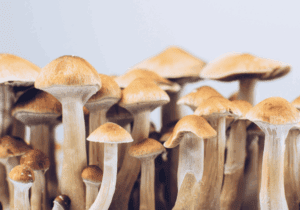Interest in psychedelic therapy is rapidly growing, both among professionals and the general public. With groundbreaking research showcasing promising results for conditions like PTSD, depression, and anxiety, this once-taboo subject is now a cutting-edge field within mental health care.
Aspiring therapists may see this as an exciting opportunity to make a meaningful impact in clients’ lives through innovative therapeutic approaches. If you’re curious about becoming a psychedelic therapist, this blog serves as your ultimate guide to understanding the field, gaining the proper training, and navigating certification requirements.
Understanding Psychedelic Therapy

Before embarking on this career path, it’s essential to understand the basics of psychedelic therapy. Broadly speaking, it refers to the use of substances like psilocybin, MDMA, or ketamine within a carefully guided therapeutic context. These sessions often aim to help clients explore unresolved trauma, emotional patterns, or mental health issues.
Psychedelic therapists act as facilitators, holding space for clients during their sessions and helping them integrate the profound experiences afterward. Unlike traditional therapy, the focus here is relational and deeply experiential, with therapists often assisting clients in navigating altered states of consciousness.
Qualities of a Great Psychedelic Therapist
Being a successful psychedelic therapist requires more than just formal training; certain personal qualities are crucial for this type of deeply sensitive and human-centered work. Consider developing the following traits before pursuing training programs:
Empathy and Compassion
The ability to offer a non-judgmental and empathetic presence is essential. Clients may surface difficult emotions, and they need to feel safe and supported throughout the process.
Resilience to Handle Sensitive Situations
Psychedelic therapy often involves profound emotional breakthroughs. Therapists must have the emotional maturity to remain steady in the face of intense sessions.
Strong Communication Skills
Facilitating dialogue before, during, and after a session is critical. Therapists must provide clear guidance while actively listening to their clients’ experiences.
Cultural Sensitivity
Given that many psychedelics, such as ayahuasca and psilocybin, have indigenous roots, therapists must respect the cultural and historical context surrounding their use.
Education and Training Programs
For those ready to take the next step, enrolling in a reputable psychedelic therapy training program is key. While there is no singular path to becoming a psychedelic therapist, here are some popular offerings to consider that combine theoretical foundations with practical experience.
Ketamine-Assisted Psychotherapy Training
Several organizations, such as the Integrative Psychiatry Institute (IPI) and Polaris Insight Center, provide specialized training for therapists interested in ketamine-assisted therapy. These programs often include hands-on experiential learning.
Indigenous Healing Practices
For those seeking a more holistic or spiritual approach, consider looking into programs that collaborate with indigenous healers. These can provide deep insights into the ceremonial use of psychedelics and their historical traditions.
Certification and Licensing

Do You Need Certification?
Unlike general psychotherapy, becoming a psychedelic therapist often requires specific certifications tied to the substance in question. For instance, MDMA therapy would typically require you to complete MAPS’ training protocols.
State Licenses and Regulations
Each location has unique regulations regarding licensing and legalities. While ketamine therapy is legally available in many jurisdictions, substances like psilocybin and MDMA are currently undergoing clinical trials and are not yet fully approved for widespread use. Be sure to research the laws and requirements in your area to stay compliant.
Professional Background Requirements
Most programs require that applicants hold a professional license in a mental health or medical field (e.g., social worker, psychologist, psychiatrist). If you’re not already credentialed in these areas, obtaining a general psychotherapy or counseling license is the first step.
Networking and Professional Development
Building a Network in the Psychedelic Community
Networking within the psychedelic therapy community can greatly accelerate your learning curve and professional opportunities. Attend conferences, join peer-support networks, and engage with organizations such as MAPS or the Psychedelic Science Association. These groups provide incredible opportunities to meet like-minded individuals and discover career openings.
Continuing Education
The field of psychedelic therapy is rapidly evolving, making ongoing education essential. Stay current by attending workshops, reading peer-reviewed research, and engaging in online communities dedicated to psychedelic therapy.
Mentorship Opportunities
Seek mentorship from seasoned practitioners. Having a guide to help you refine your approach, troubleshoot challenges, and build confidence in your initial stages can be invaluable. Many organizations offer mentorship as part of their certification programs.
Psychedelic therapy is an innovative and evolving field that offers a meaningful way to create lasting, positive change in clients’ lives. While the journey to becoming a psychedelic therapist requires dedication and preparation, it’s also incredibly rewarding for those passionate about mental health and healing.
Take the first step toward this exciting career by researching reputable training programs or connecting with professionals in the field. Whether you’re driven by curiosity, your own healing experiences, or the desire to help others, there’s never been a better time to explore psychedelic therapy.
Begin charting your path today and contribute to the future of mental health care.

